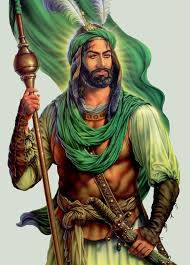Ali ibn Abi Talib was born in Mecca, Arabia, in 601 AD. He was the cousin and son-in-law of the Prophet Muhammad, and the fourth caliph to rule the Islamic empire after the death of the Prophet.
Ali played a significant role in the early years of Islam. He was the first male to accept Islam after the Prophet's revelation, and he dedicated his life to the service of Islam. He fought in numerous battles alongside the Prophet and was known for his bravery and courage.
After the death of the third caliph, Uthman ibn Affan, in 656 AD, the Muslim community was divided over the question of who should succeed him. Some of the Muslims believed that Ali should be the next caliph because of his close relationship with the Prophet and his outstanding qualities. Others thought that he was too young and inexperienced to lead the empire.
Eventually, Ali was elected as the fourth caliph in 656 AD. However, his reign was marked by constant turmoil and conflict. He faced opposition from the followers of Uthman and from some of his own supporters who felt that he was not doing enough to promote justice and maintain order.
One of the most significant events of Ali's reign was the Battle of the Camel in 656 AD. This battle was fought between Ali's forces and those of Aisha, the Prophet's wife, who opposed Ali's leadership. The battle ended with Ali's victory, but it further divided the Muslim community.
Ali's reign also saw the emergence of the Kharijites, a group of radical Muslims who believed that Ali was not a true Muslim and that he should be removed from power. They launched numerous attacks against his armies and were responsible for his eventual assassination in 661 AD.
Despite the challenges he faced, Ali is regarded as one of the most virtuous and pious leaders in Islamic history. His legacy has had a profound impact on the development of this world religion, and he is remembered as a symbol of devotion and piety.




No comments yet
Be the first to share your thoughts!